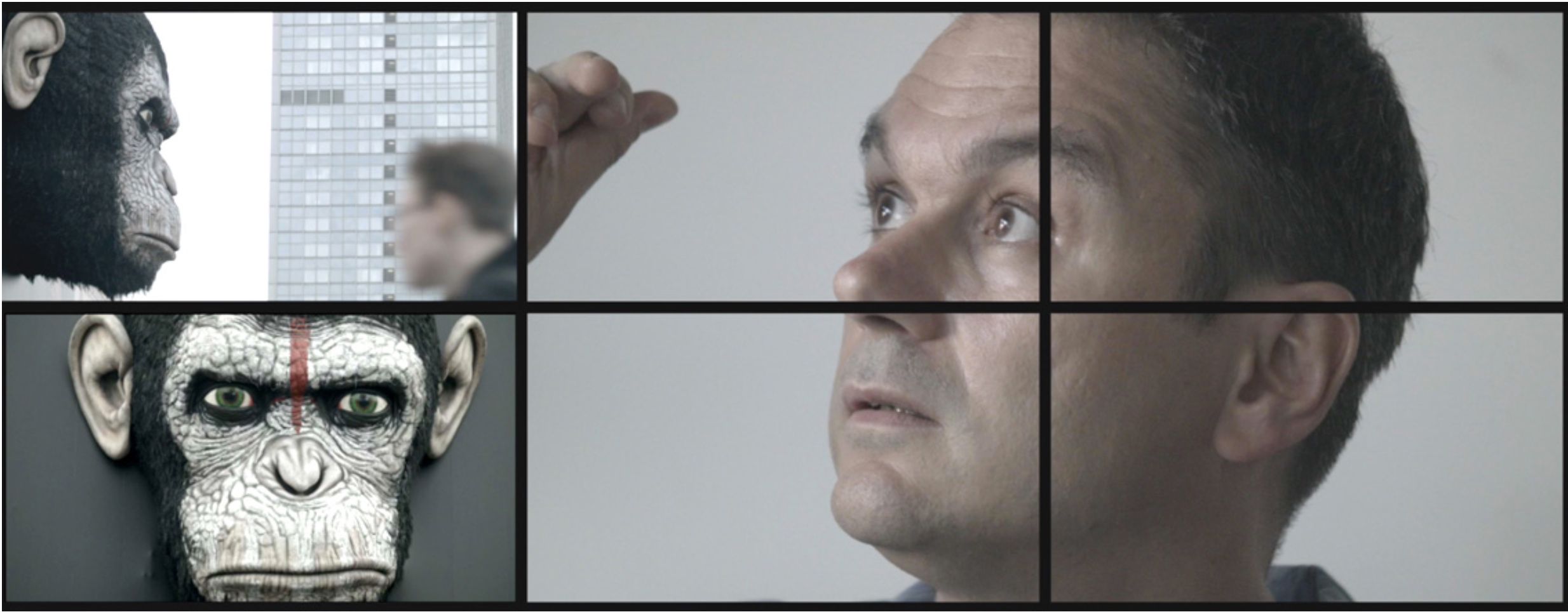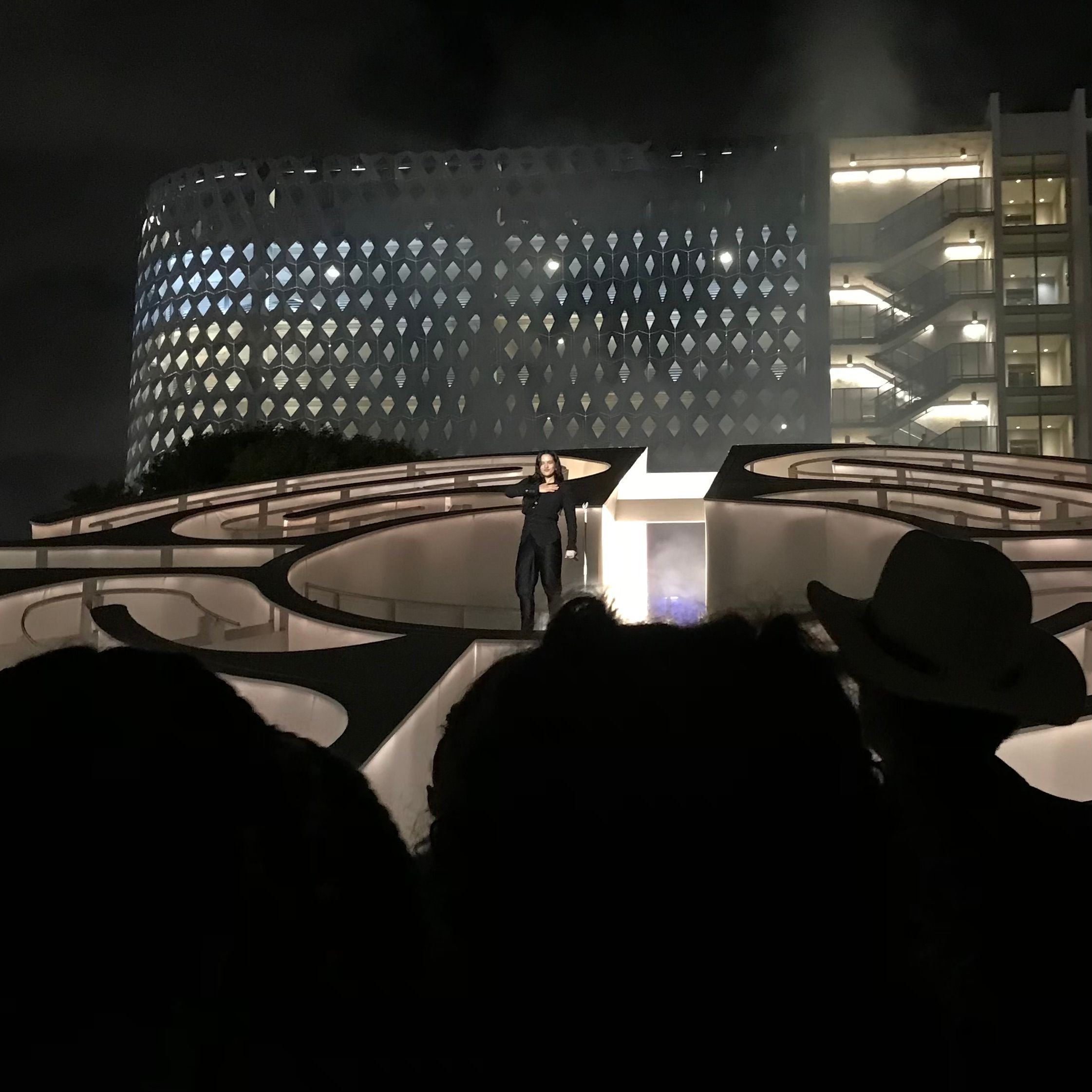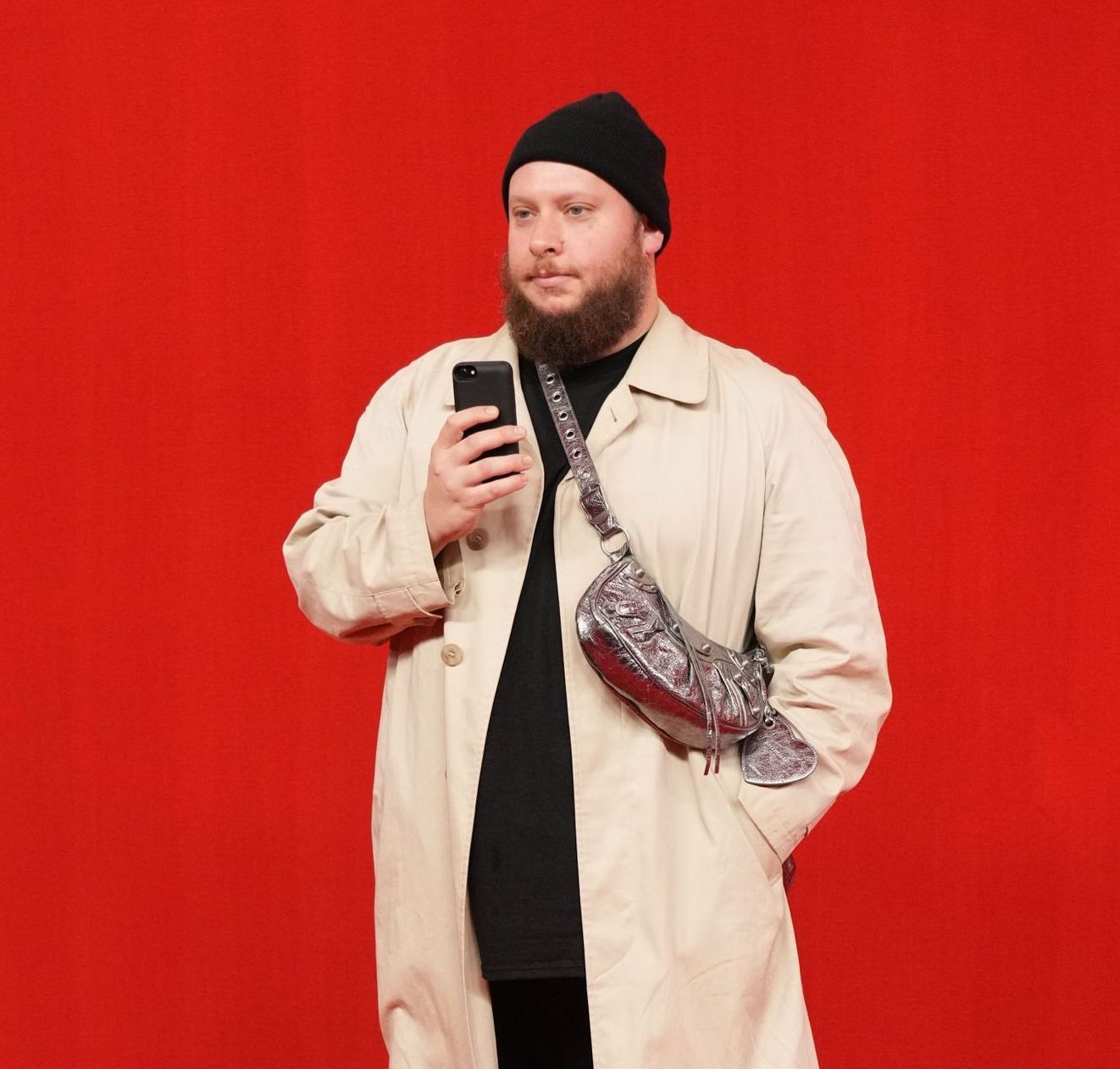Miamification: Philosopher ARMEN AVANESSIAN Goes to South Beach and Sunbathes in the Future
|ARMEN AVANESSIAN
Out just in time for the culture industry’s mass pilgrimage to Miami Art Basel, accelerationist and 032c philosophy consigliere Armen Avanessian’s new book Miamification documents the philosopher’s recent trip to South Beach. The book is framed by (often comedic) scenes of a European’s travails within the heart of capitalism – Uber rides, beach chair rentals, and propaganda about the Zika Virus – which then unravel into philosophical investigations. Miami is a city on the edge of ecological disaster, in a country on the edge of socio-political disaster, but Avanessian challenges this notion of the present as a composite of negative future outcomes. In the chapter excerpted here, representing one day of his trip, he discusses “Future Present vs. Present Future” while sunbathing and contemplating Steven Spielberg’s “Minority Report”:

Back to the same patch of beach, two streets away from the scooter rental place where, after a brief negotiation, you’re allowed to park your ride for the rest of the week, and one street from the place with the overstuffed kosher sandwiches that you’ve brought with you to the beach today. Finding a routine. Buffering your arrival. And a joint decision to keep social activities to a minimum for the first week and join the fray the week after, in October, when you have your talk and you switch to the downtown apartment.
Routinizing yourself. Becoming acclimated. Best is to alternate between soaking up the hot sun and swimming in the ocean to cool down (although the water is rather warm here). A pre lunch break from the early morning writing. Here on the beach, writing means just typing notes onto your iPhone, which you decide not to bring with you from now on. As a matter of fact you have no interest in spontaneous and elaborate descriptions of the beach. Of what you can see, you’re most interested in the unfamiliar coastal landscape combo of beach and high-rises. You hear the constant whooshing of the waves and the sounds from various construction sites in the distance. Helicopters come and go, small propeller-driven planes pull sky banners with ads and warnings, including one about the Zika virus. Seeing these ads annoys you. But you’re happy to see the gray underside of each plane as it swoops in low overhead, moving slowly through the pale-blue sky, before quickly disappearing behind the buildings.
You realize you can’t yet name a specific Miami smell. It can’t be the crude mixture of suntan lotion and bug repellant (to be used at all costs, as a concerned Art Center staffer wrote in an email). Your head is resting on Marie’s right arm, and you can smell the vinegar a lifeguard sprayed on it to relieve the minor stings of the jellyfish that are driven close to the beach by the strong winds — or at least that’s what you were able to understand through his accent.
Who was it that told you that on the beach in Rio the tourists lie facing the water and the locals orients themselves toward the sun? Qualifying as a tourist, you look out over the flat, turquoise ocean. You’re here for the water and the swimming. Which is one reason why you don’t rent beach chairs that cost more than the scooter that gets you home in two minutes. Marie observes that today, like yesterday, almost no one is swimming — people just stand around in the water, most armed with smartphones and selfie sticks.
Your routine involves swimming along the beach several times each day, first toward the harbor and then back, for at least half an hour, if Marie doesn’t insist on more. Slightly farther out than the bathers standing in the water, you can actually swim with your eyes shut, pursuing your thoughts, for minutes at a time (unless you smell sunscreen, indicating an imminent collision). Arms and legs already heavy, you stand up in the water and wait for Marie so you can ask how much farther she plans to go. At the next break on the beach you’ll have to tell her your idea that a longer text could be written here and now, in and with (but not about) Miami. At the next lifeguard point you cling to her gently and play for time, explaining your exhaustion by saying that the freestyle stroke is just far more tiring. Those who swim freestyle move in a different world, you read online on your phone; while breaststroke is only a half- hearted departure from the land. During your next break, you talk with Marie about the lack of a serious philosophy of swimming (it’s always about the Tour de France, track and field, or soccer; Deleuze on tennis and Sartre on skiing come to mind). You suggest a swimming school of thought that really gets to the bottom of the phenomenon, that involves the entire body, upper arms, back, and legs, and that is more than a superficial conception of matter but keeps surfacing and going underwater. This, fittingly, is how the Miami Vice movie begins, under the water, surfacing as the roar of speedboats is heard. Ever since seeing it, you’ve wanted to visit. After the pictures is before the pictures. Personal preemption. But today the two of you should watch a different film.
“This man, John Allison Anderton, was instrumental in the original creation of the Precrime system, the prophylactic pre-detection of criminals through the ingenious use of mutant precogs, capable of previewing the future events and transferring orally that data to analytical machinery.” Philip K. Dick
PRESCIENCE On even days you get to choose a movie (on odd days it’s Marie’s turn), and today you’ve gone with Steven Spielberg’s Minority Report. The Hollywood production from 2002 is based on Philip K. Dick’s short story from the 1950s. (The protagonist, John Allison Anderton, lives in permanent fear of being betrayed by his much younger girlfriend in Dick’s story; in the film, his wife has left him to avoid being constantly reminded of their missing child.) Anderton works for Precrime, an institution that uses cyborgs called precogs to investigate future crimes. The precogs receive visions of the future but the images are imprecise and must first be decoded.
Every time the reports are viewed you hear the same ponderous bars from Schubert’s Unfinished Symphony like an echo (alluding to the never-ending time of the perpetrators?). The déjà vu–like impressions of the precogs come from a foreseen future and highlight a contradiction inherent in a blind faith in data: if the system works, then the foreseen criminal acts don’t happen. So are these déjà vus from one possible future, one possible future among others? The movie’s plot develops out of these radically divergent future options, or even as this divergence.
In spite or because of their preoccupation with images of the future, the precogs are caught in a perpetual present. Their stream of images from the future bears on the present in several ways: first, when Precrime steps in and arrests future perpetrators (in today’s present) before they commit their crime, since in the temporal logic of Precrime they are (always already) guilty; second, when potential guilt radically alters the moment of the crime, since perpetrators who are guilty in the present future will not (be able to) commit their crime in the future present.
The time logic of Precrime thus undermines itself. This also highlights the limitations of the now almost ubiquitous regime of probability and predictability. And not because of an unmanageable quantity of data to be processed. Instead, it is a matter of the qualitative limitation of ineluctable contingency — a temporal contingency, a future mode, for there is no such thing as timeless contingency. This is what Anderton must grasp when he gets caught in the clutches of his own agency. (His partner can’t get her head around it: Lisa laughed sharply. “Risk? Chance? Uncertainty? With precogs around?”)
Such contingency, which is immune to all probabilistic calculations, occurs when the difference between the future present and the anticipated present future in any given case can no longer be explained away as personal error, erupting instead into a crisis of the system so that a possible future becomes an impossible one. But when an individual knows he is likely to commit a crime, knows he has a choice between good and evil, then the order of this time complex breaks down.
“The core theorem of a philosophy of tense that is dominated neither by the philosophy of time nor by the theory of tenses could be described in the words of John McTaggart: the present was future, is present, and will be past. ” Armen Avanessian
Precrime, predictive or pre-emptive policing, highlights a typical contemporary misconception of time: an aesthetic belief in a present that is supposed to be present to itself, in a real reality untouched by contingency and alternative futures. By contrast, the interest in poetizing the present would lie in doing justice to its asymmetry and asynchrony, as well as contaminating noncontingency and anarchy. Poetics as the recognition and production of difference. A difference in the flow of time also marks a scope for choice, with poetization implying the creation of something previous, something that is just as real as what was decided in the present.
Today’s time complex, time that arrives from the future, needs to be freed from the restrictive grip of the time police. You haven’t even begun to exploit its potential. Instead, you’re seeing unbroken trust in various police methods that Philip K. Dick described as science fiction over fifty years ago: Britain’s Behavioural Insights Team; the Social and Behavioral Sciences Team in the United States; the “heat lists,” algorithm-generated lists that identify people who are more likely to be involved in crimes, which are easy to land on but not so easy to be removed from. And today, instead of precogs stored in jelly and their fantastic image production, there’s ruthless data analysis of the pictures constantly being churned out.

PREMEDIATION The cooperation of unselfconscious sooth- sayers (particularly one especially gifted female precog, an inverse Cassandra who predicts things that don’t end up happening) and rapid deployment forces is a precise allegory for the executive reach of contemporary governmentality, in which the scope for divergent, unforeseen, and unpredictable behavior is ruled out by ignoring the kind of difference that arises through the recursive integration of the future into the present. When knowledge of the future is recursively introduced into the present — the future as known in the present as one part of the future present — new options open up. This poetic difference is given no space by today’s increasingly post-democratic version of the speculative time complex.
“Unlike government by the law, the ‘force ’ of algorithmic government consists in separating subjects from their ability to do or to not do certain things. Its target— as its focus on prediction and preemption attests — is contingency as such.” Antoinette Rouvroy
“Pre-emption (rather than regulation) of individual and collective behaviours and trajectories appears providential to cope with the complexities of a world of massive flows of persons, objects and information, and to compensate for the difficulties of governing by the law in a complex, globalised world.” Antoinette Rouvroy
Instead, state “security apparatuses” are manically gathering data. One might almost think that preemptive avoidance of violence is just a pretext for an entirely different police strategy. Whether the notorious Patriot Act has prevented further terror attacks in the United States, for example, is as uncertain as the validity of “confessions” obtained by torture, or the peace dividend of exporting democracy by means of preemptive strikes. Behind all of this is a fundamentally negative or destructive attitude toward a time that comes from the future: the only way to deal with a future perceived exclusively as hostile and dangerous is with preemptive violence — preemptive, that is, and not preventive, because rather than being reduced, the much-invoked danger of terror attacks has in fact significantly increased: basically, after every drone strike there will have been a few more terrorists. This new temporality affects the geopolitical macro-level just as much as it affects the economic micro-politics of everyday life. The changes in computer and information technologies also facilitate a new biopolitical access to private and social behavior, resulting in an increasing departure not only from premodern forms of exercising power (discipline), but also from familiar forms of organization in societies of (self-)control. This is also related to a form of media preemption that became dominant after 9/11, if not before, referred to by Richard Grusin as premediation, a new orientation of the media away from things that have already happened — or are happening now — and toward a future portrayed as a threat that confronts you at every turn in televised political debates and commentaries: What’s going to happen next? Will Trump’s confrontational strategy still work in the presidential debate or in the event that he becomes president? Is the next terror attack imminent? Where will decisions be made about what is to be done? But you are not convinced by Grusin’s theory that the main function of media preemption is a kind of trauma prevention. Rather, isn’t it the case that the fear of supposedly traumatic events (terror events) is politically welcomed, fostered, and maintained via the media?
“I take up the premediation of the Iraq War, arguing that premediation furnished the media logic of the Bush- Cheney doctrine of pre-emptive warfare. […] The aim of the Pre Crime Unit is preventive prosecution, which was to become one of the Bush Administration ’s leading strategies for tracking down and preventing terrorism in post-9/11 America. […] The idea of pre-emptive warfare has as its counterpart the domestic practice of ‘preventive prosecution’ of terrorists, which is now the official policy of the US government. Like preemptive warfare, preventive prosecution aims to stop acts of domestic terror before they happen.” Richard Grusin
Which is why it’s also high time for a new type of intelligence agency— DISCREET was in this spirit — whose foremost duty must consist in ending the security and surveillance war waged by the state on its own population. Bearing in mind that the Cold War (against hundreds of millions of allegedly dangerous communists and the real danger of a nuclear war) lasted more than four decades, it is all the more bewildering that the war on terror has now been going on for nearly two decades. A war that cannot be won, fought against, at least until recently, no more than a few thousand deranged fanatics, a war declared by secret services who have done only themselves a favor by freeing themselves from their crisis of legitimacy (having lost their raison d’être after the fall of the Berlin Wall) and launching a powerful new narrative.
During his participation in DISCREET, Sam Forsythe distinguished between dangers, which are due to past events, and threats, which come from the future. This second form of permanent fear, of a threat that can by definition not be grasped, is crucial to maintaining the status quo of a permanent state of emergency known as the war on terror.
“Premediation characterizes the mediality of the first decade of the twenty-first century as focused on the cultural desire to make sure that the future has already been pre-mediated before it turns into the present (or the past) — in large part to try to prevent the media, and hence the American public, from being caught unawares as it was on the morning of 11 September 2001.” Richard Grusin
The constant threat of imminent disaster in a hopeless and highly dramatic situation: this kind of paranoid propaganda, unopposed by fact or reality checks, is currently being practiced in its most unbridled form to date by Donald Trump. Yesterday, sitting in a bar — equipped, like most in Miami, with several screens — you could barely escape his highly suggestive nonsense. Rather than being the symptom of some traumatic process, however, Trump’s proto-fascist discourse is merely the expression of a banal rejection of key elements of reality. (This post-factual dimension is what makes him so interesting; you need to think more about this fictional dimension of his character in terms of the philosophy of time.)
The feeling of not being able to change anything, of being powerless or controlled by external forces, is the logical consequence of an inability to maneuver with and from the future. In this light, that the future can no longer be shaped or described actually means that preemption replaces prescription insofar as the future lies before the present. This situation is aggravated by the fact that the various preventive apparatuses can survey only very limited future horizons (e.g., individual consumer decisions, choice of partner, criminal acts), while larger spans of time in our complex reality remain beyond their reach, at least for the time being.
The above is an excerpt of Armen Avanessian’s Miamification, published by Sternberg Press (Berlin, 2017)
Credits
- Text: ARMEN AVANESSIAN



